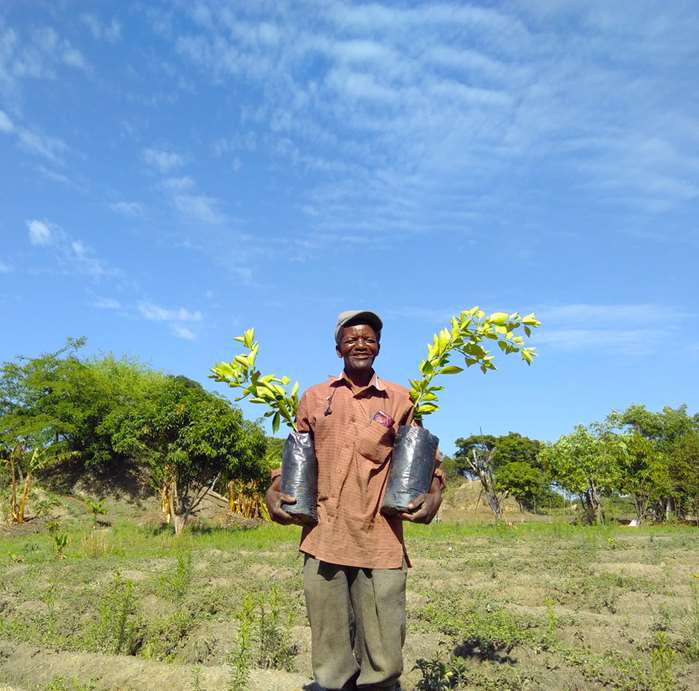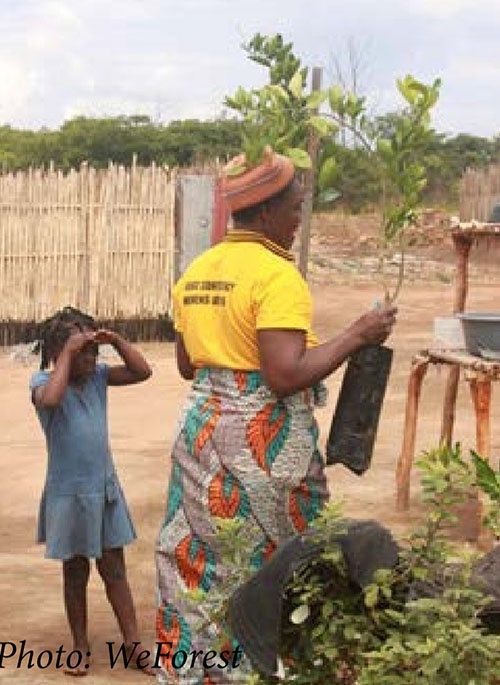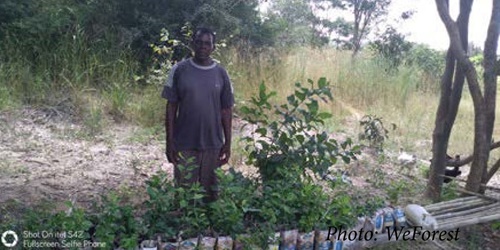
WeForest in Zambia
We're delighted to report on the wonderful work of WeForest and the Zambian project we are supporting.
Back in 2012, we made a pledge to donate 1% of global turnover to the systematic planting of trees for the foreseeable future, not only to help offset our environmental footprint but also to actively recover lost ecosystems for the benefit of communities and wildlife around the world. The lastest project lead by WeForest and supported by us is in Zambia, where they are engaging with more than 800 smallscale farming families to reduce their dependency on charcoal production for cooking or earning an income.
WeForest report: One of the key pillars of the program is skill diversification through training in forestry, beehive management, permaculture and plant nurseries, for example. Two different farmers explain how their participation in the trainings have helped to diversify their incomes and care for their families.
Agness (below) attended the trainings on plant nursery, and has now started her own homebased nursery. Her orange trees in particular are thriving, and the upcoming harvest will add to her current income. She also has five beehives, of which four are currently occupied, heralding the welcome prospect of more income from honey.

Mbewe (below) joined the WeForest Assisted Natural Regeneration trainings in 2018, and found that fruit trees were a useful way to diversify his income and help pay for his childrens’ school fees. In his own words: “We all have a part to play in protecting and growing our farm forests, and we can all make a real and tangible difference – anyone can come up with his or her own nursery regardless of gender and age, so we can easily forget charcoal production.”

You can read more on the Zambian project here and our pledge here.
All photos copyright WeForest.



